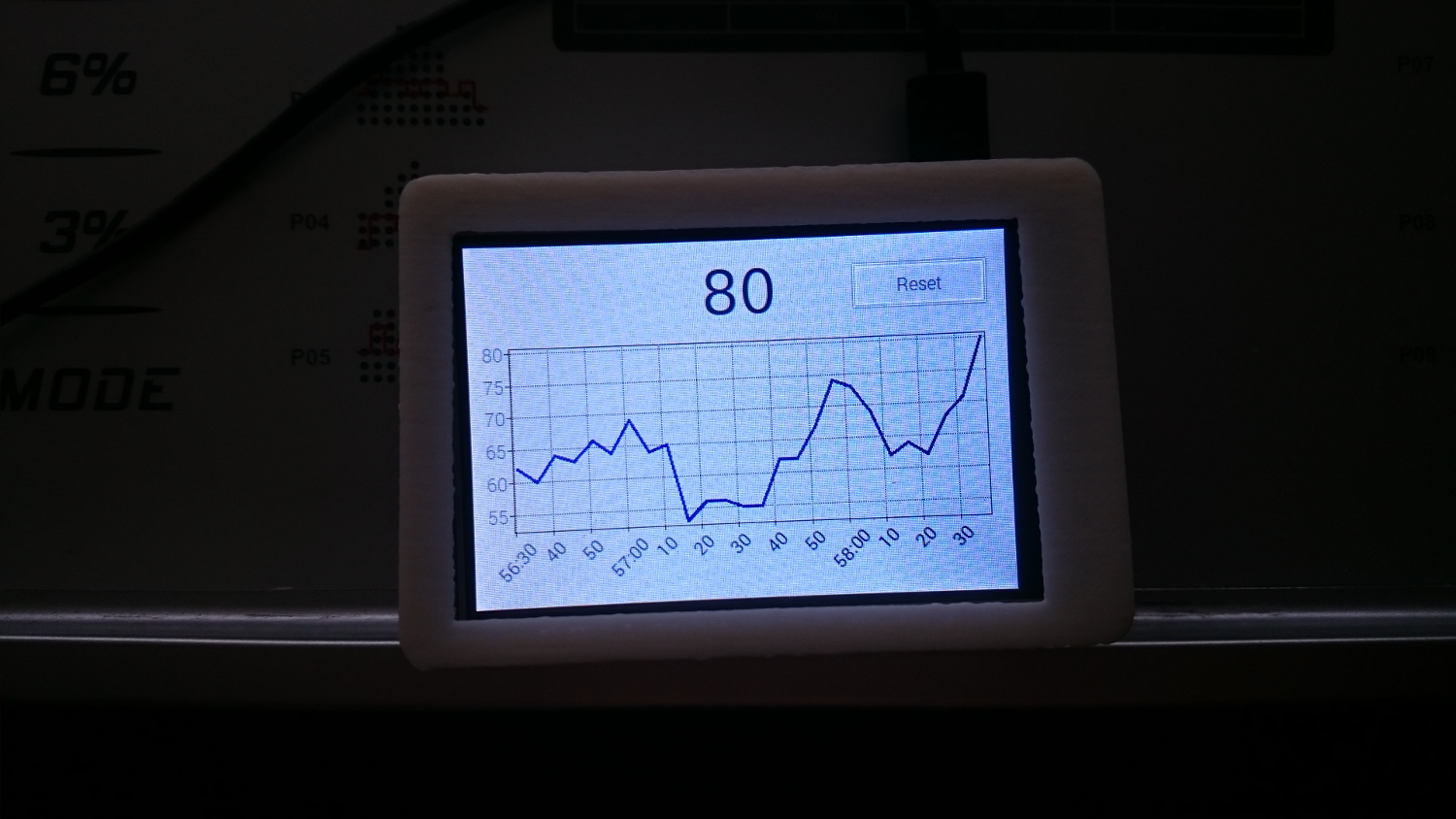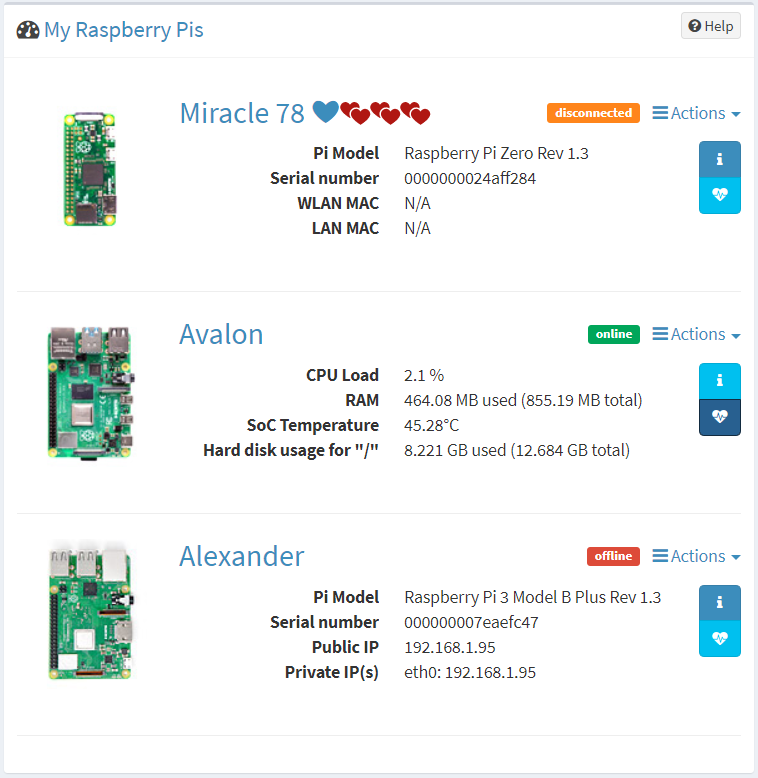Hey there, tech enthusiasts! If you're diving into the world of Raspberry Pi, you've probably realized by now that keeping your little device running smoothly is key to avoiding headaches. **Raspberry Pi check health free** is something every Pi owner should know how to do. Let's face it—your Pi is like a mini-computer powerhouse, and just like any other gadget, it needs a bit of TLC to stay in top shape. So, why not learn how to keep it healthy without breaking the bank?
Now, I get it. The idea of "checking the health" of your Raspberry Pi might sound a bit intimidating at first. But don't worry! This guide is here to walk you through everything you need to know. We'll cover simple tricks, tools, and tips to ensure your Pi is running like a well-oiled machine—all for free! Whether you're a beginner or a seasoned pro, there's something here for everyone.
By the end of this article, you'll be equipped with the knowledge to monitor your Pi's performance, troubleshoot common issues, and even prevent potential problems before they happen. Let's roll up our sleeves and dive into the nitty-gritty of Raspberry Pi health checks, shall we?
Table of Contents
- Introduction to Raspberry Pi Health Checks
- Why Check Raspberry Pi Health?
- Free Tools for Raspberry Pi Health Monitoring
- Monitoring Temperature
- Checking Storage Health
- Analyzing Memory Usage
- Network Health Assessment
- Software Health and Updates
- Pro Tips for Maintaining Pi Health
- Troubleshooting Common Issues
- Conclusion: Keep Your Pi Healthy
Introduction to Raspberry Pi Health Checks
Alright, let's kick things off with a quick overview. A Raspberry Pi health check involves assessing various aspects of your device to ensure it's functioning optimally. Think of it like a routine check-up for your Pi. You'll be looking at things like temperature, storage, memory usage, network performance, and more.
There are plenty of reasons why you'd want to do this. For starters, a healthy Pi means fewer crashes and better performance. Plus, catching potential problems early can save you a ton of time and frustration down the line. The best part? You can do all of this for free using built-in tools and commands.
Why Check Raspberry Pi Health?
So, why bother with Raspberry Pi health checks in the first place? Well, here's the deal: your Pi is a tiny but mighty machine, and like any machine, it can experience wear and tear over time. Overheating, storage issues, and software glitches are just a few of the things that can slow it down or even cause it to stop working altogether.
By regularly monitoring your Pi's health, you can:
- Prevent hardware damage caused by overheating.
- Optimize storage space to keep things running smoothly.
- Identify and fix software issues before they become major problems.
- Ensure your network connection is stable and reliable.
And the best part? All of this can be done without spending a dime. Who doesn't love saving money while keeping their tech in tip-top shape?
Free Tools for Raspberry Pi Health Monitoring
When it comes to Raspberry Pi check health free, there are plenty of awesome tools and commands at your disposal. Most of these are already built into the Pi's operating system, so you don't need to download anything extra. Here are a few of the most useful ones:
Command-Line Tools
Let's start with the basics. The command line is your best friend when it comes to monitoring your Pi's health. Here are some essential commands you should know:
vcgencmd measure_temp– Check the current temperature of your Pi.df -h– View storage usage and available space.free -h– Display memory usage in an easy-to-read format.top– Monitor running processes and resource usage in real-time.
Third-Party Tools
While the built-in tools are great, there are also some fantastic third-party options you can explore. One popular choice is Hyperion, which provides a user-friendly interface for monitoring system health. Another great option is Glances, which offers a comprehensive overview of your Pi's performance.
Monitoring Temperature
Temperature is one of the most critical factors when it comes to Raspberry Pi health. Overheating can lead to all sorts of problems, from performance slowdowns to permanent hardware damage. So, how do you keep your Pi cool?
First, use the vcgencmd measure_temp command to check the current temperature. If it's consistently above 70°C, you might want to consider adding a heatsink or fan to your setup. Additionally, make sure your Pi is well-ventilated and not placed in a confined space.
Checking Storage Health
Storage is another key area to keep an eye on. A cluttered or failing SD card can cause all sorts of issues, from slow boot times to data loss. To check your storage health, use the df -h command to see how much space is being used.
It's also a good idea to periodically run a disk check using the fsck command. This will help identify and fix any potential issues with your SD card. And if you're running low on space, consider upgrading to a larger card or moving some files to an external drive.
Analyzing Memory Usage
Memory usage is another important factor in Raspberry Pi performance. If your Pi is running out of memory, it can lead to sluggish performance and even crashes. To check memory usage, use the free -h command.
If you notice that memory is consistently maxed out, you might want to consider closing unnecessary programs or upgrading to a model with more RAM. Another option is to enable swap space, which allows your Pi to use part of the SD card as virtual memory.
Network Health Assessment
Your Pi's network connection is crucial for many applications, so it's important to ensure it's stable and reliable. To check network health, you can use tools like ping and traceroute to test connectivity and latency.
If you're experiencing network issues, try resetting your router or switching to a wired connection if possible. You can also use the iwconfig command to check Wi-Fi signal strength and make adjustments as needed.
Software Health and Updates
Keeping your software up to date is essential for maintaining Raspberry Pi health. Outdated software can lead to security vulnerabilities and compatibility issues. To update your Pi's software, use the following commands:
sudo apt update– Update the package list.sudo apt upgrade– Upgrade installed packages.
It's also a good idea to regularly check for firmware updates using the rpi-eeprom tool. This ensures your Pi is running the latest and greatest software.
Pro Tips for Maintaining Pi Health
Here are a few extra tips to help you keep your Raspberry Pi in top condition:
- Use a high-quality power supply to avoid voltage drops.
- Regularly back up your data to prevent loss in case of hardware failure.
- Keep your Pi's software and firmware updated to ensure security and compatibility.
- Consider using a case with ventilation holes to improve airflow.
Troubleshooting Common Issues
Even with regular health checks, issues can still crop up from time to time. Here are some common Raspberry Pi problems and how to fix them:
Overheating
If your Pi is overheating, try adding a heatsink or fan. You can also adjust the CPU frequency using the raspi-config tool to reduce heat output.
Slow Performance
A sluggish Pi could be caused by insufficient memory, storage issues, or outdated software. Check memory and storage usage, and make sure everything is up to date.
Network Connectivity Issues
For network problems, try resetting your router or switching to a wired connection. You can also use the iwconfig command to check Wi-Fi signal strength and make adjustments as needed.
Conclusion: Keep Your Pi Healthy
There you have it—everything you need to know about Raspberry Pi check health free! By regularly monitoring your Pi's temperature, storage, memory usage, network performance, and software health, you can keep it running smoothly and avoid potential issues. And the best part? All of this can be done without spending a penny.
So, what are you waiting for? Grab your Pi and start checking its health today! And don't forget to share this article with your fellow Pi enthusiasts. Together, we can keep our tiny computers in top shape. Happy tinkering!


